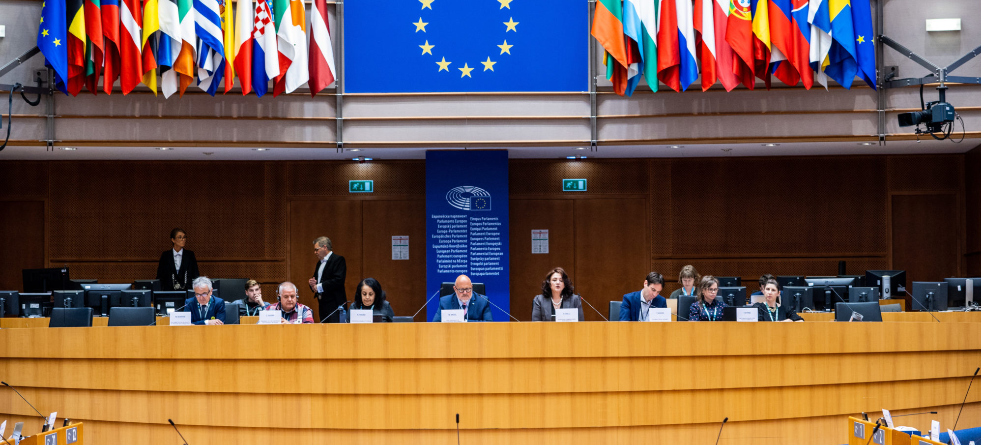Disability Parliament: Addressing Inequality, Social Exclusion, and Poverty
Social Issues Social Inequalities and exclusionPosted by NewAdmin on 2025-01-16 13:07:29 |
Share: Facebook | Twitter | Whatsapp | Linkedin Visits: 107

The European Parliament of Persons with Disabilities focused on the deep-rooted issues of inequality, social exclusion, and poverty that disproportionately affect people with disabilities. The panel addressed how a lack of social inclusion and equality leads to rising poverty, higher living costs, and increased barriers to independent living, education, and employment. Moderated by Nadia Hadad and MEP Marc Angel, the panel featured prominent voices including Helena Dalli, European Commissioner for Equality, Tamara Byrne, a self-advocate for people with intellectual disabilities, and several other experts in the field.
The panel highlighted crucial recommendations for tackling these challenges. One of the key points was the importance of accessibility as an essential factor for ensuring human rights and social inclusion. The panel stressed that EU Funds should align with the UN Convention on the Rights of Persons with Disabilities, emphasizing the need for both the disbursement and auditing of these funds to ensure compliance. It was also underscored that disability allowances should not be reduced when individuals with disabilities find employment, as these allowances cover extra costs of living in an inaccessible society. Furthermore, the panel called for special attention to be given to women with disabilities and marginalized groups, as well as the collection of disability-specific data to better address their needs.
Commissioner Helena Dalli spoke about the multiple barriers that people with disabilities face, including limited access to education, employment, and affordable housing. She emphasized that inequality is at the core of social exclusion and poverty and referenced the UN Convention on the Rights of Persons with Disabilities as a key instrument in shaping the EU Disability Strategy. She outlined several upcoming initiatives, such as guidance for supporting independent living, a Disability Employment package to address barriers to the labor market, and efforts to ensure better accessibility across the EU.
Tamara Byrne, sharing her personal experiences as a person with intellectual disabilities, highlighted the ongoing struggle for equal rights and opportunities. Despite the legal framework provided by the UN Convention, she noted that practical improvements often remain out of reach. She spoke about her own experience in mainstream education, where she was fortunate to receive adequate support, but still faced systemic barriers that prevented her from fully realizing her potential. Byrne expressed her desire for a life where she could live independently and travel without relying on family, advocating for a shift in how society views and supports people with disabilities.
Together, these discussions underscored the urgent need for a more inclusive and supportive society for people with disabilities, with a strong call for policies that not only address immediate needs but also promote long-term social and economic inclusion.
Search
Categories
Recent News
- Drug Bust Uncovers Medical Students' Ganja Network
- Drug Scandal Shocks Telangana's Medical Community
- Bihar's Medical Marvel: 10kg Tumour Extraction Saves a Life
- Adobe's Firefly: Unlocking Creative AI for Paid Users
- Defence Giant HAL's Shares Plummet Amidst Fighter Jet Competition
- Apollo Tyres Gears Up for India's Cricket Journey
- Drug Scandal: BRS Leader's Kin Questioned, Released
- Dreamliner Radar Glitch Grounds Delhi-Bound Flight